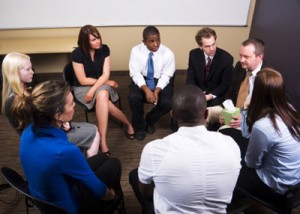Florida Addiction Treatment Centers
Each year, the Substance Abuse and Mental Health Services Administration conducts a survey, attempting to determine the type of addiction care available to people who live in all 50 states and the District of Columbia. In 2011, according to this survey, Florida was home to 617 facilities. That might seem like a very high number, but the fact is that the need for comprehensive addiction care in Florida is great, and it’s wonderful that there are so many options available for people who need to leave their destructive behaviors behind.
Florida’s Addiction Issue
 People all across the United States can develop an addiction, but Florida’s unique geographical position might make it an ideal place in which an addiction can bloom. The oceans can bring in ships full of drugs, just waiting to be distributed across the nation, and vacationers might stuff their suitcases with drugs as they plan for their getaways. As a result, Florida might be a state in which drugs are easy to get, and easy to get hooked on.
People all across the United States can develop an addiction, but Florida’s unique geographical position might make it an ideal place in which an addiction can bloom. The oceans can bring in ships full of drugs, just waiting to be distributed across the nation, and vacationers might stuff their suitcases with drugs as they plan for their getaways. As a result, Florida might be a state in which drugs are easy to get, and easy to get hooked on.
The Office of National Drug Control Policy reports that about 8 percent of Florida residents reported using illicit drugs within the last month, and that matches the national average. Some of these people might be new to drugs, dabbling in substances they’ve heard about but have never considered trying on their own. Others might have long histories of substance use and abuse, and the drugs they took within the last month are just part of this pattern of destruction. It’s a story that unfolds all around the world each day, so Florida isn’t unique in this regard. However, there is some evidence that addiction in Florida tends to take an ugly turn that isn’t always seen in other states.
According to the U.S. Centers for Disease Control and Prevention, the number of deaths in Florida attributed to drugs rose 61 percent between the years 2003 and 2009. Between 1990 and 2001 in Florida, nonsuicidal poisoning deaths rose 325 percent. It’s clear that the drugs in Florida are causing deaths, and it’s possible those deaths take place because addiction isn’t dealt with in the proper way.
People who abuse drugs are in a race with the body. They take in drugs, and the body adjusts its chemical process to make those drugs a little less potent when they’re introduced in the future. As a result, the person must take larger doses of drugs the next time around. People who are addicted to drugs might be right on the cusp of a fatal dose each time they take drugs, and they might not even know that danger is looming. With help, though, they can recover.
Treatment Options
 Various different techniques have been used to stem the tide of addiction in Florida. Many of these attempts have used the law enforcement system, attaching long prison sentences to the manufacture and sale of drugs. Others have been punitive, such as a measure passed in Florida in 2012 that requires welfare recipients to pass a drug test before they can obtain their checks.
Various different techniques have been used to stem the tide of addiction in Florida. Many of these attempts have used the law enforcement system, attaching long prison sentences to the manufacture and sale of drugs. Others have been punitive, such as a measure passed in Florida in 2012 that requires welfare recipients to pass a drug test before they can obtain their checks.
It’s not clear that these measures actually work in reducing addiction rates, and if they do fail, it’s easy to see why. Addictions are issues of chemistry, not issues of morality. People who have addictions need help in order to curb their addictions, and this is the kind of assistance they can find in a formal treatment program for addiction.
Rehab programs attempt to change behavior by providing people with:
- Individual therapy
- Group therapy
- Medication management
- Family therapy
- Support groups
These programs might also pair people with community resources that can help them to:
- Finish their education
- Find a job
- Obtain safe housing
- Learn good parenting skills
- Pick up a trade
It’s a wraparound, comprehensive approach that can help the person to understand how the addiction was formed, what can be done about it now, and what might need to happen in the future to keep an addiction from coming back. It’s better than punishment, as it allows people to really learn and change their behavior. Programs like this might be rounded out with comprehensive aftercare services that can help people to maintain their sobriety and avoid their triggers to relapse, so they can move from treatment to independent living without backsliding.
Finding the Right Program
 With so many options available, it can be intimidating for people to determine which program might make the best fit. Those who have sober friends might be able to ask them which programs they used in order to get well, and those who have stringent insurance companies with a list of preferred providers might also be able to lean on their benefits administrators in order to choose the right program. But others might be at a loss as to where to start the search.
With so many options available, it can be intimidating for people to determine which program might make the best fit. Those who have sober friends might be able to ask them which programs they used in order to get well, and those who have stringent insurance companies with a list of preferred providers might also be able to lean on their benefits administrators in order to choose the right program. But others might be at a loss as to where to start the search.
The Internet can be a valuable tool, as many treatment facilities place a significant amount of information about their programs online, ready for consumers to browse. They can read up on the treatments offered, see photos of the facility and perhaps even read testimonials from previous clients. It’s an excellent way to start, but a browse should always be followed by a telephone call or visit. Programs might look great online, but they might be less-than-stellar in person, and some programs have long waiting lists for admission that they might not advertise online. It’s best to call and ask questions before diving right in. This extra step could make all the difference in finding the right program.
If you’re a woman needing care, we hope The Orchid will make your short list. We provide intensive, science-based care for women who have addictions, mental illnesses or both. We’ve tailored each treatment we provide to meet the unique needs of women, and we work hard to customize our programs to help our individual clients grow in sobriety and maintain their wellness when they leave us. We provide treatments that are hard to find in other Florida facilities, and we’d like to tell you about them. Please call us for more information.
Further Reading